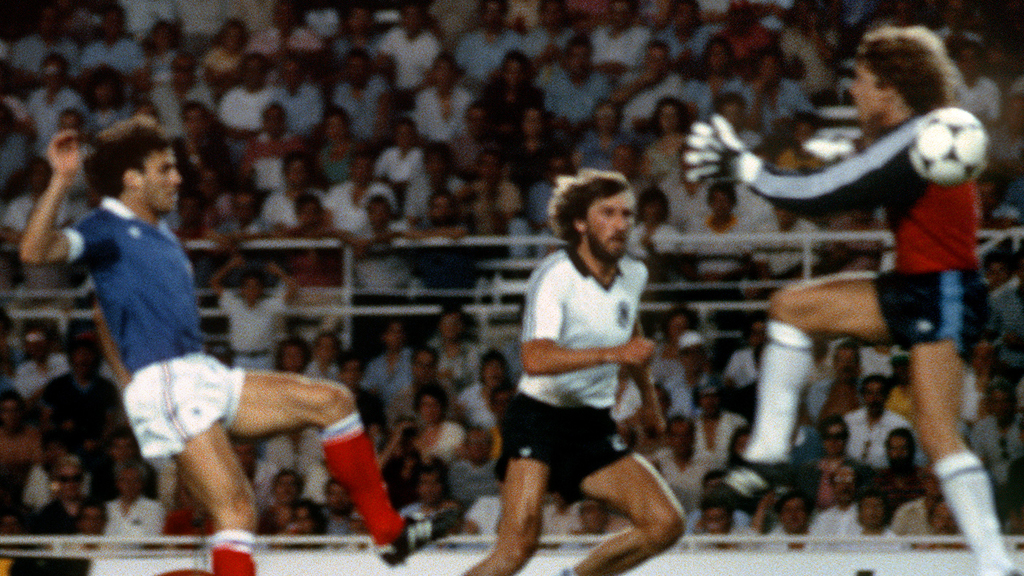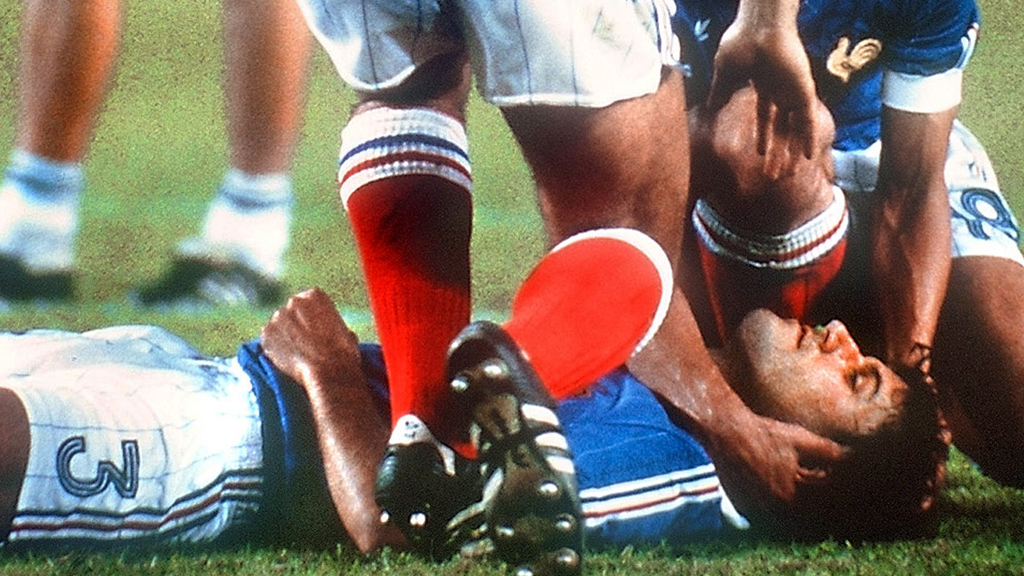The greatest – and the worst – World Cup match ever?
As France and Germany prepare for their last-eight encounter in Brazil, we look back at one of the most exciting – and notorious – matches ever, the 1982 World Cup semi-final in Spain.

English fans are used to talking up the rivalry between England and Germany. The Three Lions’ ever-diminishing status as a power in world football may undermine the force of that rivalry.Nevertheless, the countries’ inter-connected political and military histories give added spice to any sporting clash between the two.
But the hinterland behind any football match between Germany and France is at least as rich and complex. They fought each other in major wars on three occasions in the 75 years between 1870 and 1945. Since then, the nations have formed the core political and economic partnership within the European Union.
For French supporters, one match between the two countries stands out in the memory: the 1982 World Cup semi-final. It is a match celebrated for the quality of its attacking football, in particular from France, and for a foul that some regard as the worst ever committed at a World Cup match.
Flowing football
Though their progress through to the last four had been relatively smooth, France began the 1982 tournament in Spain with a 3-1 defeat at the hands of England. In the process they conceded what was, at the time, the fastest-ever World Cup goal, scored by Bryan Robson.
By contrast, Germany – or West Germany, as they were then – had already prompted outrage when they appeared to connive with Austria to secure progress out of the group stage at the expense of Algeria.
Even against England, France’s flowing football had suggested they might go far in the tournament. By the semi-final, Michel Platini, then 27 and playing in a memorable midfield alongside Alain Giresse, Jean Tigana and Bernard Genghini, had at last announced himself as a world-class footballer.

No evasive action
With the semi-final second half underway, France are in the ascendant, though the score is 1-1. Platini takes the ball near the right-hand touchline, inside the German half, and guides it over the heads of the German defenders.
Substitute Patrick Battiston, only on the pitch for 10 minutes, follows it and prods it past the oncoming goalkeeper, Harald Schumacher.
No film or play could ever recapture so many contradictions and emotions. It was complete. It was fabulous. Michel Platini
But Schumacher does not stop when he sees Battiston has beaten him to the ball. Nor does he take action to avoid hurting the Frenchman. Instead, he hurtles forward, poleaxing his rival and knocking him out.
Battiston loses several teeth in the incident and is hospitalised. Schumacher – who stands apart from the French players as they gather round their fallen colleague, waiting for him to be stretchered off – is not even disciplined.
The match finishes 3-3 and goes to penalties. Schumacher’s save eventually secures Germany’s progress into the World Cup final where they lose to Italy.
Easing tensions
The Seville semi-final is remembered by many for the cynicism of the German keeper’s behaviour. After the match, when told Battiston had lost two teeth, Schumacher replied: “If that’s all that’s wrong, tell him I’ll pay for the crowns.”
Such was the public outrage, not just in France, that West German Chancellor Helmut Schmidt and French President Francois Mitterrand released a joint press statement to ease tensions.
But it is also recalled as one of the great World Cup contests. Pierre Littbarski, who scored West Germany’s first goal, recalled: “I have never experienced a better and more exciting match.”
And Michael Platini, who two years later would lead France to the European Championship, said of the match: “That was my most beautiful game. What happened in those two hours encapsulated all the sentiments of life itself.
“No film or play could ever recapture so many contradictions and emotions. It was complete. So strong. It was fabulous.”